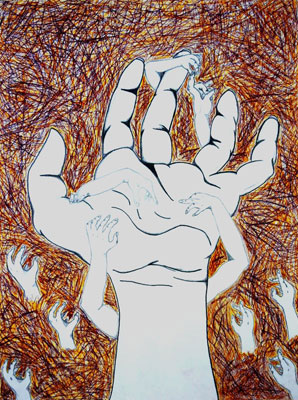All Nonfiction
- Bullying
- Books
- Academic
- Author Interviews
- Celebrity interviews
- College Articles
- College Essays
- Educator of the Year
- Heroes
- Interviews
- Memoir
- Personal Experience
- Sports
- Travel & Culture
All Opinions
- Bullying
- Current Events / Politics
- Discrimination
- Drugs / Alcohol / Smoking
- Entertainment / Celebrities
- Environment
- Love / Relationships
- Movies / Music / TV
- Pop Culture / Trends
- School / College
- Social Issues / Civics
- Spirituality / Religion
- Sports / Hobbies
All Hot Topics
- Bullying
- Community Service
- Environment
- Health
- Letters to the Editor
- Pride & Prejudice
- What Matters
- Back
Summer Guide
- Program Links
- Program Reviews
- Back
College Guide
- College Links
- College Reviews
- College Essays
- College Articles
- Back
Order in the Court!
Judicial corruption is constantly in the news. There are 2,000,000 prisoners in the U.S., more than any other country, even China. Why so many? Corruption. The unbelievable amount of corruption in our justice system must end, as it stands in the way of justice. The government must implement reforms such as making trial records public, raising salaries in the judicial system and aggressively investigating corruption.
You’re probably asking yourself, what’s judicial corruption? Corruption, “the misuse of public or entrusted power for private gain¨, is the cause of many injustices in the American judicial system. It can be bribery, illegal gratuity, kickbacks, corporate espionage... I’ll give several examples. The first case is that of Thomas J. Maloney, an ex-judge from Illinois with a reputation for being tough on everyone. He helped fix three murder cases and the El Rukn gang case for $122,000. The second example is the ´Kids for Cash´ scandal. Two Pennsylvania judges sent thousands of teenagers to a juvenile facility in exchange for $2,600,000 in kickbacks. Many of these teenagers had committed insignificant offenses, or done nothing at all. Lastly, Carol ¨Set ´em free¨ Feinman, whose motives weren’t financial. When Feinman was moved to Brooklyn, she took it upon herself to do her job badly, aiming to be repositioned again. She declared guilty criminals innocent using ridiculous excuses, and ignoring obvious evidence like fingerprints or videos.
But does this really affect us all? Yes, it does. When innocent people are incarcerated and the perpetrators go scot-free, there’s no real justice system upholding the country. Corruption also slows down the country’s progress by preventing progressive laws from being passed and enlarging the gap between social classes. Many corrupt judges receive thousands, or millions, in illegal money. They don’t declare it to the government, don’t pay taxes on it... Nothing. They get ever richer as they unfairly send others to jail.
We must work to diminish the number of corrupt judges. If you go to court, you must be aware of your rights to not be easily tricked. Using protests or social media, we must demand judicial reforms, such as making it obligatory to make an audio and proper records of the trial available to everyone. We all must work towards these goals. By all of us, I mean the government too. The government must make judges less susceptible to bribery by paying them fairly, depending on experience, track record and performance. It should also create anti-corruption organizations and carry out investigations, removing corrupt judges from the system. All of this will significantly help reduce judicial corruption, even if some is inevitable.

Similar Articles
JOIN THE DISCUSSION
This article has 0 comments.
